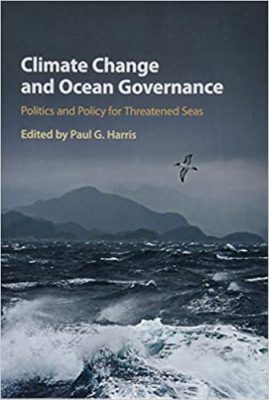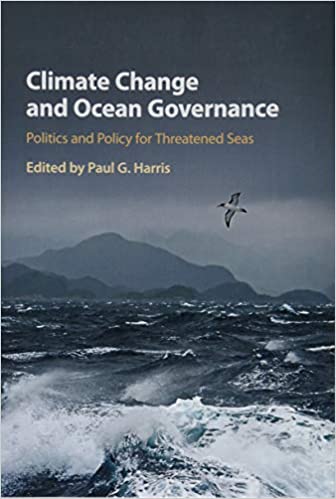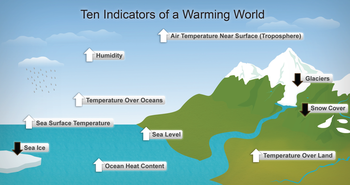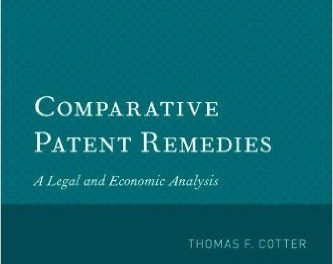 Editor: Paul G. Harris
Editor: Paul G. Harris
Publisher: Cambridge University Press
Book Review by: Sonu Chandiram – 450 pages
Seven of these indicators would be expected to increase in a warming world and observations show that they are, in fact, increasing. Three would be expected to decrease and they are, in fact, decreasing. Image credit: Wikipedia
An article in Wikipedia warns us: “The effects of global warming or climate damage include far-reaching and long-lasting changes to the natural environment, to ecosystems and human societies caused directly or indirectly by human emissions of greenhouse gases. It also includes the economic and social changes which stem from living in a warmer world.
Many physical impacts of global warming are already visible, including extreme weather events, glacier retreat, changes in the timing of seasonal events (e.g., earlier flowering of plants), sea level rise, and declines in Arctic sea ice extent.”
Unless all governments, particularly those of major countries including the United take action to mitigate the adverse effects of climate change, the massive threat to human life as we know, will not subside.
A 2014 study by the World Health Organization shows us that the threat to human life caused by changes in climate the world over included an additional 250,000 additional deaths per year between 2030 and 2050
In this book by Professor Paul Harris, a detailed action plan is provided to avoid this threat, with a summary in the Conclusion in Part VII of this highly valuable book.
Forty specialists in various areas relating to climate change and ocean governance, from 16 countries – Australia, the Bahamas, Canada, Germany, Hong Kong, India, Indonesia, the Netherlands, New Zealand, Norway, Philippines, Qatar, South Africa, Switzerland, Tasmania, and the United States – authored the 27 chapters of this extensive book. We name them below to provide you a broad overview of the scope and contents of this book:
- Part I – Introduction
- Climate Change at Sea: Interactions, Impacts, and Governance
- The Ocean Governance Regime: International
- Part – Vulnerable Islands and Coasts
- Political Economy of Coastal Development: The Case of the Caribbean
- Coastal Development and Climate Risk Reduction n the Persian-Arabian Gulf: The Case of Qatar
- Adapting to Sea-Level Rise in the Indian Ocean: The Cases of India and Bangladesh
- Coastal Risks from Typhoons in the Pacific: The Case of the Philippines
- Ocean Policy Perspectives: The Case of Indonesia
- Politics of Rising Tides: Governments and Nongovernmental Organizations in Small-Island Developing States
- Part III – Marine Fisheries and Pelagic Seas
- Climate Change and Fisheries Politics: Case Studies from the United States, New Zealand, and Norway
- Policy Options for Marine Fisheries: Approaches in a Changing Climate
- Large Marine-Protected Areas and Ocean Resilience: Stake holder Conflict in Pelagic Seas
- Climate Change and Contested Marine Areas in the Arctic: The Case of Svalbard
- Part IV – Changing Polar Seas
- Climate Change and the Southern Ocean: The Regime Complex for Regional Governance
- Policy Responses to New Ocean Threats: Arctic Warming, Maritime Industries, and International Environmental Regulation
- The Arctic Ocean’s Melting Ice: Institutions and Policies to Manage Black Carbon
- Part V – Institutions and Law for Ocean Governance
- Contested Multilateralism: Toward Aligning Regimes for Ocean and Climate Governance
- Climate Change in the Coral Triangle: Enabling Institutional Adaptive Policy
- Non-territorial Exclusive Economic Zones: Future Rights of Small Island States
- International Law and Marine Ecosystem Governance: The Climate Change Nexus
- Managing Marine Resources: Can the Law of the Sea Treaty Adapt to Climate Change?
- Part VI – Policies for Ocean Governance
- The Plastic-Climate Nexus: Linking Science, Policy, and Justice
- Financing Emission Reductions: Forest Mechanisms as a Model for Coral Reefs
- Capturing a Moving Target: De-carbonizing Shipping through Informational Governance
- Energy from the Sea: Challenges and Opportunities
- Climate Change and Navies: Bracing for the Impacts
- Geo-engineering at Sea: Ocean Fertilization as a Policy Option
- Part VII – Conclusion
- Ocean Governances Amid Climate Change: An Essay on the Future
This is a timely and very important work, and very well documented with research findings.
Editor:
Paul G. Harris is a political scientist and Chair Professor of Global and Environmental Studies at the Education University of Hong Kong. He is author and editor of many books on global environmental politics, policies, and ethics, including Global Ethics and Climate Change, 2nd edition (Edinburgh University Press, 2016), the Routledge Handbook of Global Environmental Politics (Routledge, 2016), and What’s Wrong with Climate Politics and How to Fix It (Polity, 2013).








